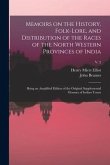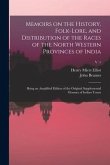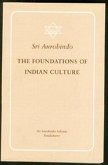In this volume, whose first edition won wide scholarly acclaim in India, nine distinguished Indian historians re-examine what is perhaps the central problem throughout India's history. In a general introduction, Frykenberg points out some of the broader aspects of the relations between land control and social structure. This is followed by a theoretical examination of the meaning of the concept of 'land' in an Indian milieu. Also included are essays on more specific themes: the zamindars under the Mughals; the disruption of land-holding under the British; the fate of the 'dispossessed'; the transformation of local rajas into landlords in Oudh; the Permanent Settlement in operation in a Bengal District; the integration of agrarian life in south India; the Ryotwari system in the Madras Presidency and the endurance and tenacity of village influences within south India from regime to regime. Specially new in this edition is an essay about persistent historical tendencies leading to structural disintegration entitled 'Traditional Processes of Power in South India'
Hinweis: Dieser Artikel kann nur an eine deutsche Lieferadresse ausgeliefert werden.
Hinweis: Dieser Artikel kann nur an eine deutsche Lieferadresse ausgeliefert werden.








